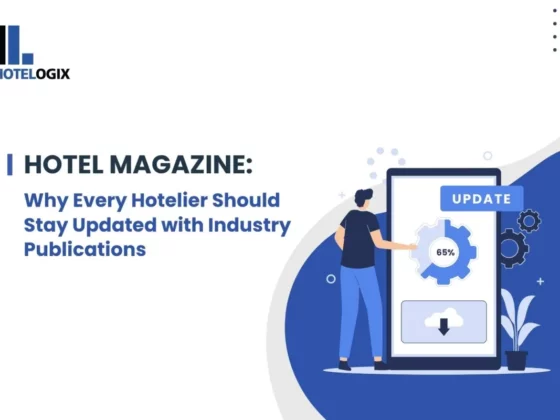
Not long ago, I sat at a quiet café and watched a waiter manage a few tables alone. He moved quickly, politely, with just enough energy to keep up, but no one looked him in the eye. No one said thank you. Not once. No recognition. Just tasks to complete.
It struck me: he was invisible.
And in that moment, I realized something I’ve been feeling for years: we are quietly drifting into a world where the individual matters more than the connection.
We speak about leadership, service, and team culture, yet too often, our daily actions reflect something else: survival, isolation, self-preservation.
In hospitality, an industry built on empathy and human warmth, this shift hits especially hard. We see the signs: disengaged employees, guests who sense when smiles are scripted, and leaders burning out behind polished facades.
It’s not about people doing less. It’s about people feeling less seen.
The Culture of “Me First”
We’ve built a society that celebrates independence and personal success. That’s not inherently wrong. But when “me first” becomes the default, when personal gain always trumps collective good, we begin to lose something vital.
We see it in the workplace:
- Colleagues competing instead of collaborating
- Teams fragmented by ego
- Rising levels of burnout and disengagement
We see it in leadership:
- A focus on performance without presence
- Recognition of numbers over people
- Staff who feel replaceable instead of valued
A student once told me about her internship, No one notices when I do well, they only speak up when I mess up
.
That isn’t leadership. That’s disconnection.
This isn’t just sad, it’s dangerous. In the long run, a disconnected culture breeds apathy. And apathy kills excellence.
What Hospitality Has Always Known
There’s something sacred about the hospitality industry. It’s not just about delivering a product, it’s about creating moments. Memories. A sense of home away from home.
Hospitality professionals have always known something essential: we are at our best when we are part of something bigger than ourselves.
Whether it’s a hotel team preparing for a full house or a group of students planning an event together, magic happens when roles dissolve and relationships take the lead.
But that magic requires more than efficiency.
It requires belonging.
And it’s the leader’s responsibility to create that space, not through speeches, but through example. Through small daily acts that remind the team: you matter here.
The Myth of Doing It Alone
For years, I tried to be the “strong leader.” I took on more than I needed to. I kept emotions to myself. I thought I was protecting others by being the unshakeable one.
But I’ve learned, especially through teaching, that vulnerability is not weakness. It’s an invitation.
When leaders show up as humans, imperfect, present, and committed to others, teams open up, trust grows, and performance follows.
Hospitality isn’t about individual excellence.
It’s about co-created experiences, among guests, staff, leaders, and learners.
And that means creating a culture where asking for help isn’t shameful, it’s smart. Where collaboration isn’t a buzzword, it’s the norm.
A Generation Hungry for Meaning
This shift is especially important now. In classrooms and workplaces, I see a new generation, Gen Z, who are often labelled as “disloyal” or “hard to manage.”
But here’s what I actually see:
- They’re not disengaged. They’re disenchanted.
- They crave purpose, not just pay checks.
- Authenticity, not just authority.
- And, most of all, they want to be part of something that makes them feel alive.
Leadership, in this context, isn’t about command. It’s about mentorship. Guidance. Shared values.
The question is no longer How do I get people to follow me?
It’s How do I inspire people to walk with me?
A Human-Centered Compass for Leadership
If we want to move from “me” to “we,” here’s where I believe we start:
1. Create cultures of recognition.
See people. Thank them. Not just in the good times, especially in the hard ones. Recognition isn’t a bonus, it’s a basic human need.
2. Normalize interdependence.
Let’s stop acting like needing help is failure. In a healthy team, asking is a strength. Interdependence is how humans have survived and thrived for centuries.
3. Teach empathy like we teach KPIs.
Empathy isn’t fluff. It’s a skill. It belongs in leadership training just as much as finance or operations. Because people remember how they felt, not just what was delivered.
4. Lead as a mirror, not a mask.
Reflect your team’s best qualities back to them. Don’t hide behind roles, step into real connection.
Final Thought
People don’t stay in jobs for the brand or the benefits. They stay because someone made them feel they matter.
Hospitality is not just about the guest experience, it’s about the human experience.
We can’t afford to lead in ways that leave our people invisible. Because in a business built on connection, disconnection is the real cost.
If we want better results, better retention, better teams, we have to start with a better question: How can I serve the “we” today, not just the “me”?
That’s the compass I try to follow. And I believe it’s the one that can lead us all home.
Alexandre Gamberoni
Senior Lecturer at Les Roches Global Hospitality Education
+41 (0)27 485 96 00
Les Roches






